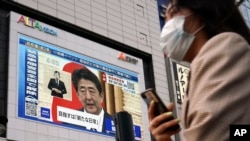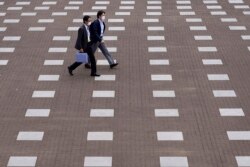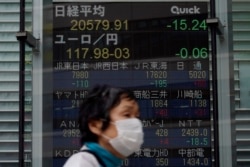Japanese Prime Minister Shinzo Abe has lifted the state of emergency for Tokyo and four neighboring prefectures imposed last month at the height of the coronavirus outbreak. The move ends nationwide restrictions as businesses begin to reopen their doors.
The prime minister announced the move Monday during a televised speech, hours after a special coronavirus panel approved a plan to lift the decree for the Japanese capital and its surrounding areas. The decision was made after the number of new infections began trending downward.
The prime minister initially declared a 30-day state of emergency on April 7 for Tokyo and six other prefectures, including the central port city of Osaka, as the number of COVID-19 infections began to rise. Prime Minister Abe extended the measure nationwide just a few days before it was set to expire, then gradually lifted it as the outbreak appeared to ease. The decree was set to expire on May 31. The COVID-19 disease is caused by the coronavirus.
The emergency declaration stopped short of imposing a legally binding nationwide lockdown, due to Japan’s post-World War II constitution, which weighs heavily in favor of civil liberties.
Japan currently has more than 16,500 confirmed cases of COVID-19 infections with 820 deaths, a relatively low figure compared with other nations. Abe said Monday that the country’s success in containing the coronavirus in such a short period of time showed the strength of the “Japan model.”
The outbreak, however, has pushed the Japanese economy into a recession and forced postponement of the Tokyo Summer Olympic Games for a year. Abe’s approval ratings have also plunged to record lows due to his apparent slow response to the pandemic.
Also Monday, Japan’s professional baseball league announced that its season will begin on June 19 after a delay of nearly three months because of the outbreak. Commissioner Atsushi Saito said no fans will be allowed into the stadiums when the league begins play, becoming the first major professional sport in Japan to return to action since the start of the pandemic.







